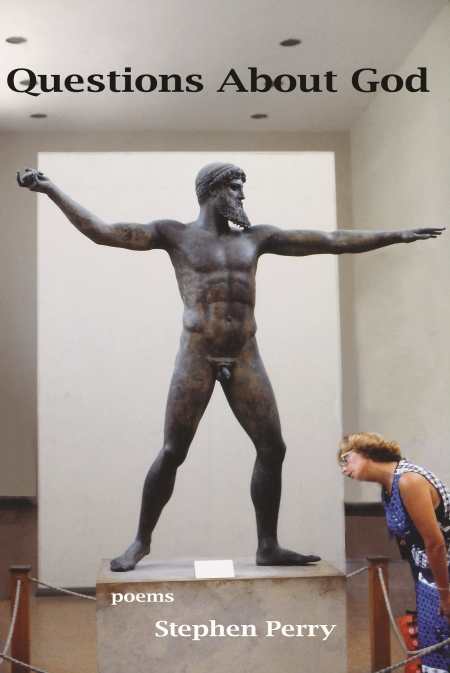
Questions about God
The edgy subject matter and skillful use of poetic techniques provoke both laughter and deep thought.
Post-modern humanist poetry is a mouthful, and Stephen Perry’s sprawling poems, which tackle poetry, God, death, and memory, are no different. An amateur physicist and botanist, ever-questioning Perry incorporates science, religion, and philosophy into this collection.
Forget boundaries—Perry allows his mind full range when it comes to his subject matter. Perry’s poems are raw; the title poem’s first line poses the question, “Does God have a penis, and did Mary see it.” Forget polite company—the poem’s speakers are bold and unreliable. They push back on critics and history.
No matter the length, these works are packed full with rich metaphors. In just half a page, Perry chronicles life and death as students dissect a body in “Gross Anatomy on Her Birthday.” This poem opens with an image of an asternal rib and how it “sounds like ribs connected / to stars.” The poet talks about how the students are not supposed to “humanize the corpse,” and yet the speaker can’t help but wonder how this corpse broke its leg in a fall from a horse or about the “gentler younger hands that loved these breasts.” As the speaker studies death, life radiates from the poem. The students “learn the names of organs and what they do. How ribs float / and fall and are not flowers.”
Perry uses line breaks to highlight key ideas. For example, in “Napi,” a doctor performing an abortion tells a Blackfoot story about life and death. Napi, a mythical figure who shapes the world, decides whether or not people will live forever by tossing a stone into the river. If it floats, they live, and if it sinks, they die. Perry closes the piece with the following couplet: “and Napi said, ‘You have chosen.’ After / her baby died she realized what she had done.”
The sheer range of the collection can sometimes feel overwhelming. After all, Perry tackles everything from Judeo-Christian and Buddhist ideas to science and Greek mythology. Perry shifts gears quickly, which is jarring and sometimes confusing.
All subjects are treated with the same blend of reverence, sharp humor, and skepticism. As with a Russian doll, as one layer of meaning is peeled away, another question is revealed.
Reviewed by
Lisa Bower
Disclosure: This article is not an endorsement, but a review. The publisher of this book provided free copies of the book to have their book reviewed by a professional reviewer. No fee was paid by the publisher for this review. Foreword Reviews only recommends books that we love. Foreword Magazine, Inc. is disclosing this in accordance with the Federal Trade Commission’s 16 CFR, Part 255.
